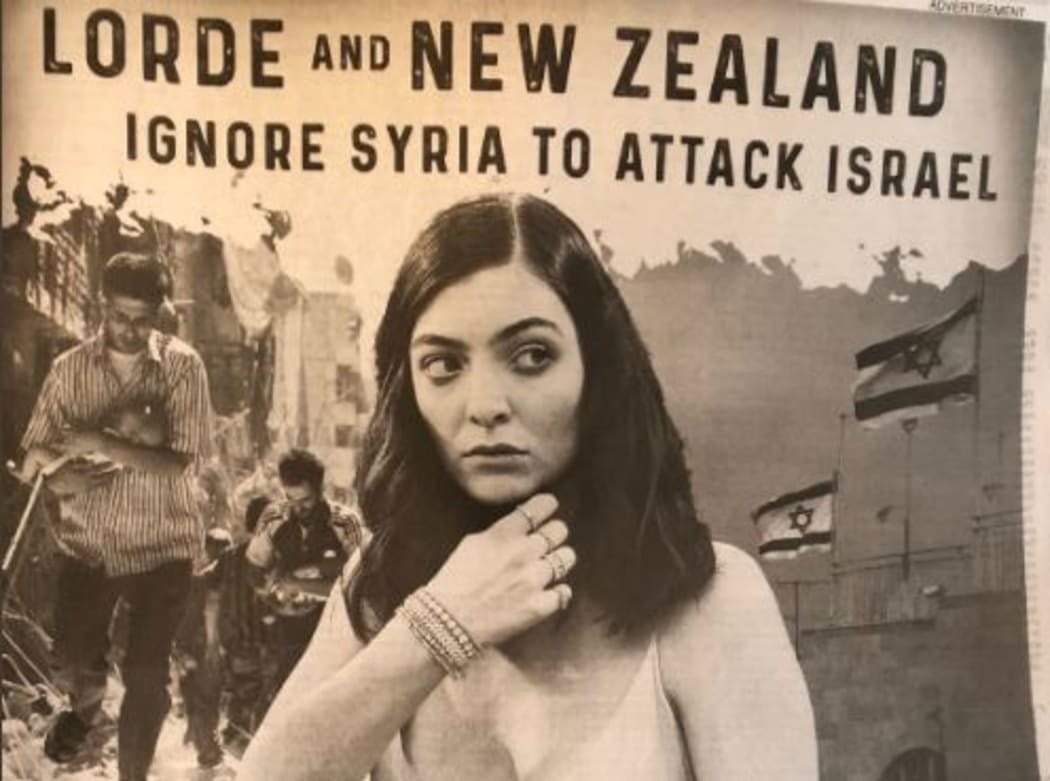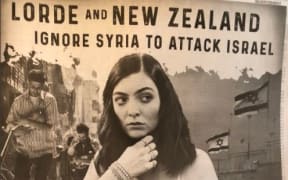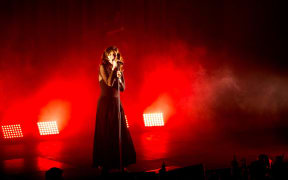Opinion - Pop artists aren't political tutors or experts on foreign affairs, writes David Cohen.

Lorde Photo: RNZ
"Don't you think it's boring how people talk?" Lorde asked in her breakout single, and for a while the question probably seemed rhetorical.
Once upon a time, it's true, young pop stars talked about things that are clearly the rather boring stuff of pop music, things to do with the acne and ecstasy of youth, things like going out on dates, cheatin' hearts, night club rituals, driving down the highway, and so on. Not so in the year of our Lorde, 2018.
Who would have thought the weight of one of the world's most intractable geopolitical conflicts would be placed on the slim shoulders of New Zealand's admired performer?
Whether Lorde's decision to bag a planned show in Tel Aviv will actually save any future victims in the conflict between Israelis and Palestinians is an open question - and one that will probably be wearisomely debated again when Pink Floyd co-founder Roger Waters arrives in New Zealand for a few shows later in January.
For now, however, the names of a few victims closer to hand deserve to be read.
Sympathy
First, there's the singer herself. She deserves some sympathy. Getting pelted with thousands of pieces of unsolicited advice is nobody's idea of a fun Christmas break.
Pop artists are not political tutors or experts on foreign affairs, and little in their normal lives as entertainers equips them for those roles. Especially not at the still-tender age of 21, and certainly not by way of social media.
Tweets are a hell of a blunt way to discuss something as deep and sensitive as the Middle East. There's a mountain of good scholarship to draw on, but mostly what the artist received were petty brutalities and bad manners - what passes for pithy communication on social media. On this occasion, the bluntness was replete with anti-Semitic trolls and the American chap who urged the leadership of his country to immediately invade New Zealand.
Oh, for the good old days when indignant news consumers could only tap out a letter to the editor, including their name, address and daytime contact number, subject to the expected rules of decency and decorum in debating other human beings.
Still, as any music critic knows, performers tend to be enormously sensitive to anything that smacks of public criticism - the Australian artist Nick Cave said as much the other month when explaining his own conviction to play Israel and be damned.
On this occasion the decision Lorde hastily took, and was fully entitled to take, was most likely made under such duress.

A full-page ad taken out in the Washington Post by a pro-Israel group calling singer Lorde a 'bigot'. Photo: Washington Post
Unwittingly, perhaps, her biggest ally turned out to be her most prominent critic: the New Jersey-based Schmuley Boteach, who bills himself as "America's rabbi" and this week billed the young performer as New Zealand's bigot laureate.
His full-page advertisement in The Washington Post, which assailed New Zealand's voting record at the United Nations and conjured the dark spectre of a surging anti-Semitic populace in the South Seas while also taking the singer to task, was a masterpiece in the ham-fisted art.
The advertisement's tone strangely mirrored the "open letter" tactic often used by those who more often campaign on the other side.
In Los Angeles, in particular, Mr Boteach moves in gilded circles, where he probably rarely encounters people who think his style is a bit unwise, or that he might be something of a stentorian windbag, or that rules are just as important as results when it comes to convincing the majority of onlookers who still keep an open mind.
Did anyone think to ask him, for example, whether a single person among the millions who have now encountered the ad would have been positively inspired by the ill-starred effort?
Actually, somebody did think to mention that - the New Zealand Jewish Council.
The council immediately distanced itself from the stunt, and in doing so highlighted the significant gulf that exists between the local Jewish community here in the South Seas and some of its stateside counterparts.
That point was also underscored by Boteach's own Facebook page, which then harshly criticised the council's spokesperson, Juliet Moses, over the apparent lack of solidarity.
This, of course, was simply another instance of the moral assaults that have characterised the entire Lorde affair.
Perhaps the shambles it has mostly been will give the practitioners of such politics pause the next time a young popster from Middle Earth toys with the idea of visiting the Middle East.
*David Cohen is a Wellington writer and journalist.





